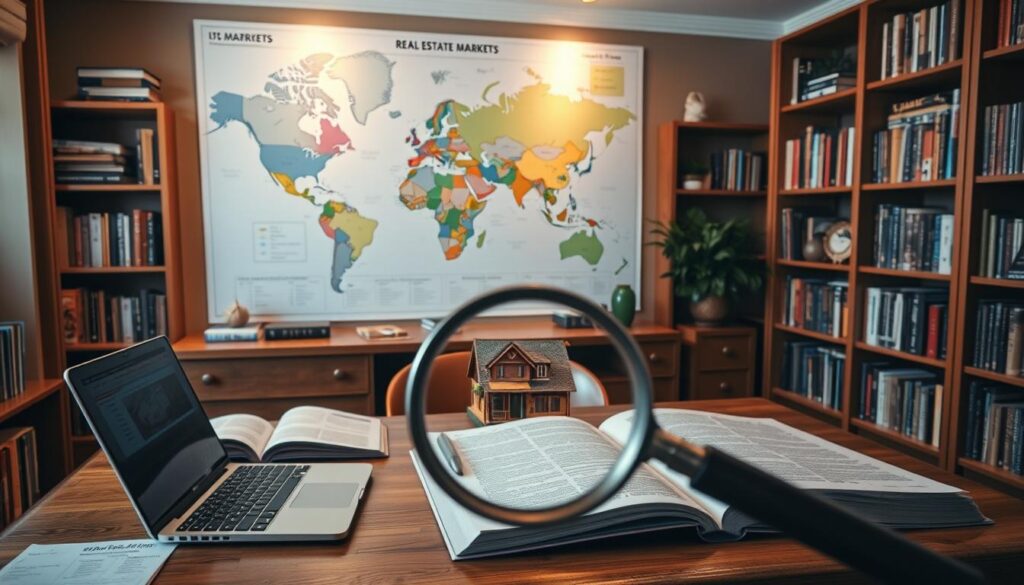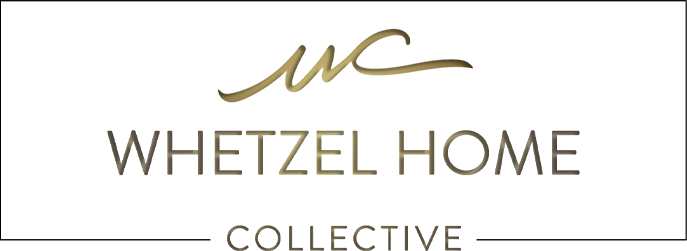Buying a house without a real estate agent can be tough but also rewarding. The usual home buying process involves many professionals. But, some buyers are choosing to go it alone. In 2020, only 6% of homebuyers bought directly from a builder or builder’s agent.
To buy a house without a realtor, you need to know a lot and plan well. While 86% of home buyers use an agent, learning about independent home buying can save you money. It also gives you more control over finding your property.
Whetzel Homes Collective knows that buying a home is a big financial step. This guide will help you navigate the real estate market on your own. You’ll learn about financial prep, legal needs, and closing procedures.
Key Takeaways
- Independent home buying requires thorough market research
- Financial preparation is key before starting your search
- Knowing the legal side protects your investment
- Mortgage pre-approval makes buying easier
- Getting advice from pros can help avoid risks
Understanding the Traditional Home Buying Process
Buying a home can be tricky, but real estate agents make it easier. They help buyers find their perfect home. In fact, 89% of buyers work with an agent or broker.
The home buying journey has many steps. Real estate agents are key in these steps. They guide buyers through searching, negotiating, and closing the deal.
The Role of Real Estate Agents
Real estate agents are vital in the home buying process. They offer:
- Market research and finding properties
- Scheduling and showing properties
- Negotiating prices and terms
- Handling paperwork and documents
- Sharing market insights and pricing advice
Standard Commission Structures
It’s important to know how agents get paid. Typically, the buyer’s agent gets 2.5% to 3% of the home’s price as commission.
| Home Value | Agent Commission | Percentage |
|---|---|---|
| $300,000 | $7,500 – $9,000 | 2.5% – 3% |
| $400,000 | $10,000 – $12,000 | 2.5% – 3% |
| $500,000 | $12,500 – $15,000 | 2.5% – 3% |
What Agents Typically Handle
A good real estate agent handles a lot. They make the process smoother for buyers. They arrange viewings, analyze the market, prepare offers, and help with negotiations.
As of August 2024, new policies might change how agents get paid. Knowing this can help you make better choices when buying a home.
Benefits and Risks of Buying Without an Agent
Buying a home without an agent has its ups and downs. Even though 88 percent of buyers use agents, some try to save money by going it alone. This choice can be tempting.
Those thinking about buying on their own need to know the risks. Not having a professional can lead to big financial problems.
Key Advantages of Independent Home Buying
- Potential cost savings on commission fees
- Direct control over the purchasing process
- Personalized property search strategy
- Flexibility in negotiation approach
Potential Risks to Consider
- Higher risk of overpaying for properties
- Limited market knowledge
- Complicated legal documentation
- Reduced negotiation leverage
“Buying a home without an agent requires extensive research and preparation.” – Real Estate Expert
Young and first-time buyers face big challenges without an agent. Real estate deals are complex and need a lot of time, knowledge, and understanding.
| Aspect | With Agent | Without Agent |
|---|---|---|
| Market Knowledge | Extensive | Limited |
| Negotiation Skills | Professional | Personal |
| Legal Protection | Comprehensive | Minimal |
While skipping the agent can save money, it’s not without risks. Buyers must think carefully about the financial downsides. Getting professional help is often the best choice in complex real estate deals.
Getting Started: Financial Preparation
Starting your journey to buy a home needs careful planning and preparation. It’s important to know your financial situation before you start looking at houses. You must make sure you’re ready financially for this big step.

Getting ready financially means focusing on a few key areas. These will help you stand out in the real estate market:
- Assess your current financial health
- Determine your home purchasing budget
- Understand mortgage options
- Prepare for closing costs
Mortgage Pre-approval Process
The mortgage pre-approval process is a key step in buying a home. Lenders will look at your financial details, including:
- Credit score
- Income verification
- Debt-to-income ratio
- Employment history
Getting pre-approved for a mortgage has big benefits. It shows sellers you’re serious and can afford the home. Even first-time buyers can qualify for loans with just 3% down, making it easier to own a home.
Understanding Your Budget
Figuring out your home buying budget is more than just the price of the house. You also need to think about property taxes, insurance, upkeep, and closing costs. These extra costs can really affect your total financial commitment.
Down Payment Considerations
Down payments can vary based on your financial situation. While some say you should put down 20%, many loans offer lower down payments. You can even get loans with down payments as low as 3-5%, making it easier to buy a home.
Careful financial preparation can transform your home buying experience from overwhelming to exciting.
How to Buy a House Without a Realtor
Buying a house without a realtor needs careful planning and research. Even though 87% of buyers use agents, you can find a home on your own. Just be strategic and thorough.
Look at many sources to find your dream home. Effective research is key to buying a house without a realtor.
Key Property Search Platforms
- Craigslist.org for local listings
- FSBO.com (For Sale By Owner websites)
- Zillow and Realtor.com
- Facebook Marketplace
- Local real estate social media groups
Independent buyers spend 20 to 30 hours researching before making an offer. This effort helps you understand the local market and property values.
“Knowledge is your most powerful tool when buying a home without professional representation.”
Property Search Metrics
| Search Method | Average Time Spent | Potential Homes Viewed |
|---|---|---|
| Online Platforms | 15-20 hours | 5 homes |
| Social Media | 5-10 hours | 2 homes |
| Local Networking | 5 hours | 1-2 homes |
Be ready for a longer search. Homes sold without an agent take 10-15% longer to sell. Stay patient and keep trying.
While saving on commission, you’ll spend a lot of time searching. Think about getting a real estate attorney for legal help and protection.
Researching the Real Estate Market
Looking for a property needs careful planning and smart research. About 80% of homebuyers use online tools to find homes. Knowing the real estate market is key, even without a traditional agent.

Good property search strategies use many ways to find market info. Buyers should use different sources to learn about local trends and chances.
Online Property Platforms
Digital tools have changed how we search for properties. Important websites for listings are:
- Zillow
- Realtor.com
- Trulia
- Redfin
Analyzing Comparable Sales
Comparing recent sales in your area helps set fair prices. Look for properties with similar:
- Square footage
- Number of bedrooms
- Architectural style
- Location characteristics
Understanding Market Trends
Market trends are vital for buyers. Look at these important signs:
| Market Indicator | Current Trend |
|---|---|
| Homeownership Rate | 66.4% |
| Home Price Fluctuation | 1-3% Annual Change |
| FSBO Sales | 8% of Total Sales |
Creating a smart property search plan needs effort, research, and knowing local real estate. Use online tools, compare sales, and follow market trends. This way, buyers can make smart choices when buying a home.
Legal Requirements and Documentation
Buying a home without a realtor means you must pay close attention to legal details. It’s important to understand the real estate contract well. This is key when you’re handling the deal on your own.
Important legal points for solo home buyers include:
- Thoroughly reviewing all legal papers
- Making sure the title is transferred correctly
- Knowing the real estate laws in your state
- Keeping your legal rights safe during the deal
Even if your state doesn’t require a lawyer, getting one is a good idea. They can help with closing costs and legal issues that might come up.
Research shows 15% of buyers face legal problems when buying a property. This shows why getting legal help is so important.
Here are some key documents you’ll need to handle:
- Purchase agreement
- Property disclosure statements
- Title documents
- Mortgage paperwork
- Documents for transferring ownership
Dealing with legal documents can be tough. About 30% of first-time buyers feel stressed by the legal side of buying a home. Getting professional legal advice can help a lot and keep your money safe.
Your real estate contract must clearly state all terms and financial details. It’s vital to check closing costs and any hidden fees to avoid surprises.
Property Search and Evaluation Strategies
Looking for a property requires careful planning and research. For those buying from a for sale by owner (FSBO), knowing how to search is key. It helps find the perfect home.

Good property search strategies use different ways to find homes that fit your needs. Buyers should use online tools, local resources, and networking. This way, they can find more opportunities.
Finding FSBO Properties
Finding FSBO properties takes creativity and effort. Here are some effective ways:
- Check local classified ads
- Look at online FSBO websites
- Drive through neighborhoods you’re interested in
- Talk to people in the local community
- Use social media to find properties
Attending Open Houses
Open houses are great for seeing properties in person. To make the most of it, prepare by:
- Looking up property values in the area
- Bringing a notebook to take notes
- Photographing the property
- Ask questions about the property
Property Viewing Checklist
A detailed checklist helps buyers check properties carefully. Important things to look at include:
- Structural integrity
- Possible repair costs
- The area’s quality
- How close it is to important services
- Its future development possibilities
Those searching for properties on their own need to be thorough, patient, and analytical. With good research and evaluation, you can find the right home without a realtor.
Making an Offer Without Agent Representation

Creating a strong real estate contract without an agent needs careful planning and detail focus. Buyers must know that negotiating the price is key in buying a home. Without an agent, you’ll have to handle the offer-making yourself.
Here are the main steps for a good offer:
- Look up similar homes sold in the area
- Figure out a fair yet competitive offer price
- Check the seller’s property details carefully
- Write a detailed offer document
- Add necessary conditions to protect you
When you’re negotiating the price, think about the market. Competitive markets might need offers at or above the list price. But in slower markets, you might get a better deal. Showing you have cash or a pre-approval letter can help a lot.
Important documents for your contract include:
- The purchase price
- The earnest money deposit amount
- Financing details
- Inspection conditions
- The closing date
Getting advice from a real estate lawyer is vital without an agent. They can check your contract, make sure it’s legal, and guide you in negotiations.
Negotiation Techniques for Independent Buyers
Negotiating a home price without a realtor needs smart thinking and confidence. Only 14% of buyers go it alone, so you must be good at negotiating.
Good negotiation can get you a great deal. Buyers who lead the way can save 2.5% to 3% on commissions.
Crafting a Compelling Initial Offer
When you make an offer, do your homework. Follow these steps:
- Look at 6 months of similar home sales nearby
- Check out homes built 5 years ago or less
- Know the current market
Strategic Counter Offer Management
Negotiation often goes back and forth. Be ready for several counter offers.
| Negotiation Element | Recommended Approach |
|---|---|
| Earnest Money Deposit | 1% to 10% of home price |
| Contingency Options | Include financing, inspection, and appraisal clauses |
| Price Flexibility | Be ready to give in by 3-5% from your first offer |
Stay professional and fact-based in negotiations. Thorough research and confidence can lead to success in a private sale.
Home Inspection and Due Diligence
A detailed home inspection is key when searching for a property. It helps you avoid costly surprises. About 65% of new buyers find issues during inspections.
Inspectors check important parts of the home for problems. The cost, $300 to $500, is worth it to protect your investment.
What to Expect During a Home Inspection
- Structural assessment of foundation and walls
- Electrical system evaluation
- Plumbing system check
- Roof and exterior condition review
- HVAC system performance test
Inspection results are vital for your buying decision. Statistically, 24% of inspections reveal significant issues, 32% show minor problems, and 30% pass without complications.
Key Inspection Findings to Consider
| Issue Type | Potential Impact | Recommended Action |
|---|---|---|
| Structural Damage | High Repair Costs | Negotiate Price or Withdraw |
| Electrical Problems | Safety Risks | Request Professional Repairs |
| Water Damage | Potential Mold Growth | Investigate Root Cause |
Your home inspection is more than a routine checkup—it’s a strategic tool in your property search. By identifying problems early, you can make informed decisions and protect your financial investment.
90% of sellers are legally required to disclose known property problems, making the inspection a critical verification step.
Remember, a thorough home inspection can uncover hidden issues that might not be apparent during initial viewings. Investing in a professional inspector gives you peace of mind and negotiating power in your home buying journey.
Understanding Closing Procedures

Buying a house without a realtor can be tricky. The final steps are key and need your full attention. They are essential for owning your new home.
Real estate deals usually take 30 to 60 days to close. This time is filled with important steps. Knowing these can help you plan and save money.
Title Search Essentials
A title search is vital to protect your investment. It checks:
- Property ownership history
- Existing liens
- Possible legal issues
- Clear transfer of property rights
Breaking Down Closing Costs
Closing costs are a big part of buying a home. They usually range from 2% to 7% of the home’s price. It’s important to budget for these costs.
| Closing Cost Category | Estimated Percentage |
|---|---|
| Loan Origination Fees | 0.5% – 1% |
| Appraisal Fees | 0.3% – 0.5% |
| Title Insurance | 0.5% – 1% |
| Property Taxes | 1% – 2% |
Pro tip: Some closing costs can be negotiated. Always check your Closing Disclosure document. You’ll get it three days before closing.
Getting ready for closing means several steps. Buyers need to have a cashier’s check or wire transfer ready. You’ll also sign many documents, over 100 pages, to finalize your purchase.
Working with Real Estate Attorneys
Buying a home without a realtor means you need legal help. A real estate attorney is your key partner in protecting your rights. They know how to handle complex contracts and keep your interests safe.
When you buy a home on your own, an attorney is very important. They help avoid expensive mistakes:
- They review real estate contracts carefully.
- They check the title and make sure it’s correct.
- They spot legal risks you might not see.
- They help negotiate terms.
- They make sure everything follows the law.
Finding the right real estate attorney is important. Look for someone who knows a lot about buying homes. Not all lawyers are good at this, so it’s key to find one who specializes.
“A good real estate attorney is like an insurance policy for your largest investment.” – Legal Experts Network
Hiring a real estate attorney can cost between $500 and $1,500. It might seem a lot, but it can save you thousands by avoiding legal problems.
Attorneys do many important things. They write and check purchase agreements. They do deep title searches. They make sure all documents are legal. Their help is very valuable, even more so for tricky properties or complex deals.
Common Pitfalls to Avoid
When you sell a home privately, you face many challenges. Knowing these common issues can help you make smart choices and keep your investment safe.
- Underestimating the complexity of a real estate transaction
- Failing to conduct thorough property research
- Skipping critical due diligence steps
- Misinterpreting contractual obligations
Buying a home without help can be risky. 14% of buyers purchased a home without an agent last year. This means many people are handling big responsibilities on their own.
| Potential Pitfall | Potential Consequence |
|---|---|
| Inadequate Property Inspection | Unexpected repair costs |
| Incomplete Legal Documentation | Potential contract disputes |
| Overlooking Market Conditions | Overpaying or purchasing in unfavorable market |
When you sell a home privately, you need to spend a lot of time researching and learning about the law. The average home costs $408,800. This is a big financial step that requires careful attention.
Knowledge and preparation are your best defenses against home buying mistakes.
To avoid risks, get your mortgage pre-approved, do a detailed property check, and talk to lawyers when needed. By knowing these challenges, you can go through the home buying process with more confidence and success.
Empowering Your Home Buying Journey: Key Takeaways for Success
Buying a house without a realtor needs careful planning and a good grasp of the home buying steps. It’s doable on your own, but it’s tough. You’ll need to do lots of research, learn about the law, and know the market well.
Whetzel Homes Collective knows every home buying journey is different. If you want to buy a house without a realtor, getting ready is key. Spend time learning about the market, understanding legal papers, and improving your negotiation skills.
Even without an agent, getting professional help is a good idea. Talk to real estate lawyers, home inspectors, and financial advisors for advice. Whetzel Homes Collective in St. George, Utah, offers help and advice for those buying a home.
Whether to buy a home without an agent depends on your confidence, market knowledge, and comfort with complex deals. You must be honest about your abilities and ready to put in a lot of effort. Understanding every part of the home buying process is essential.
